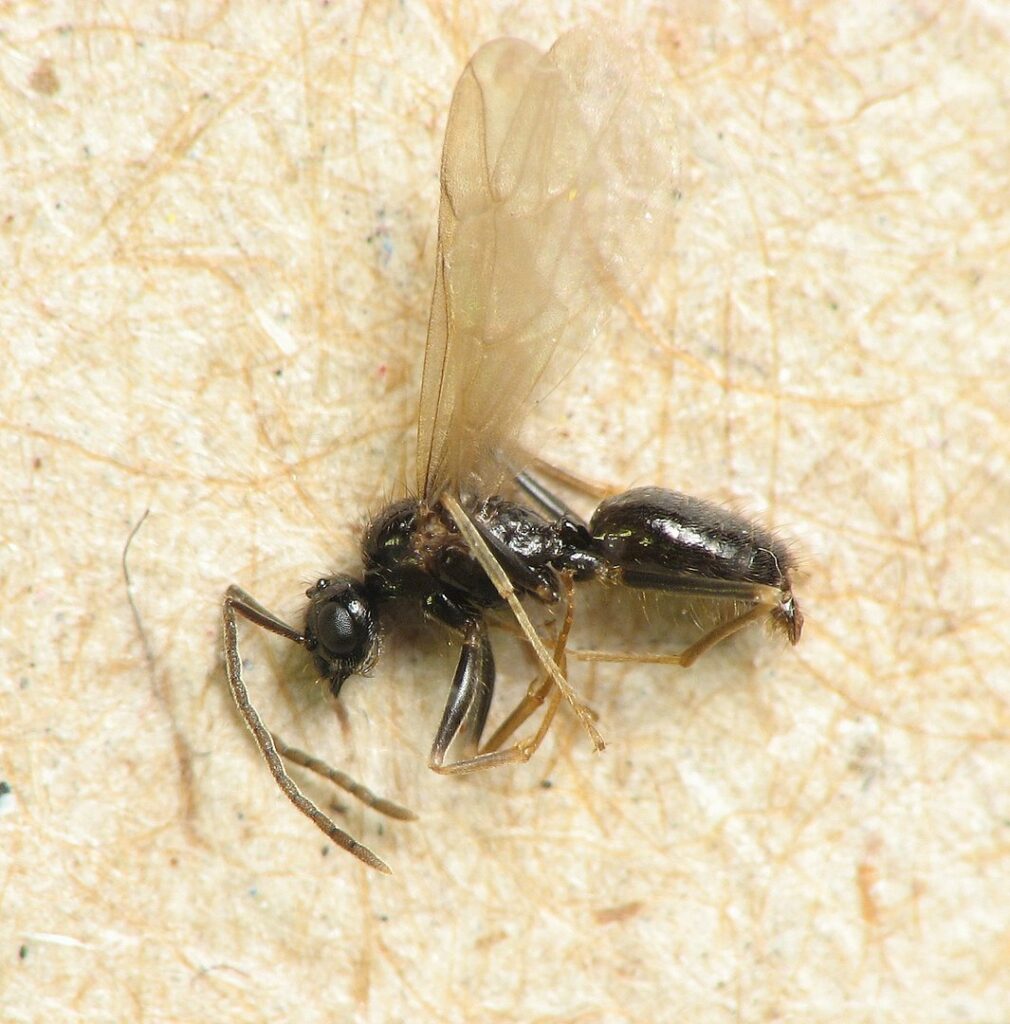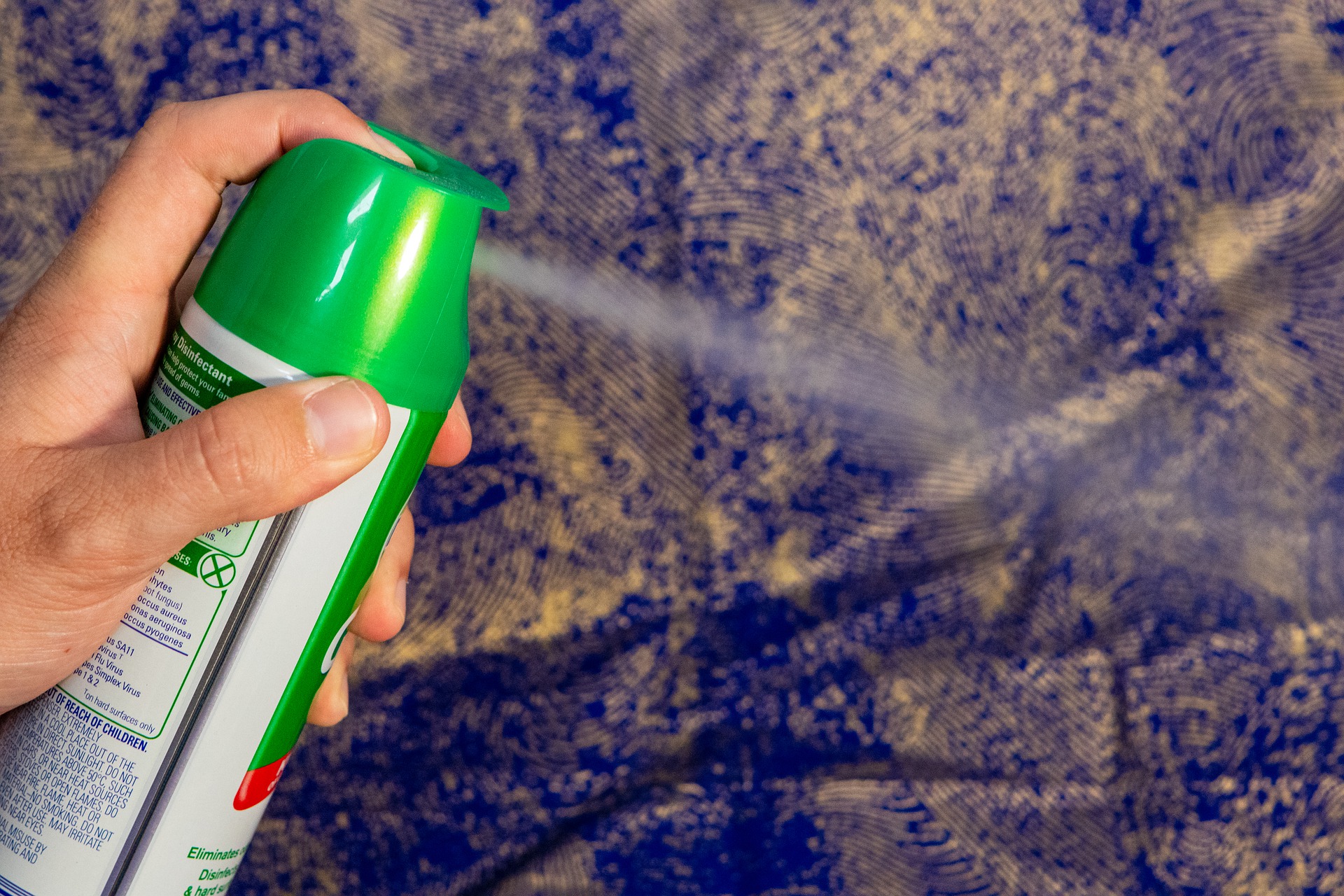Ants may be industrious little creatures, but if you have them on your property they can be very annoying. But do you know what’s more annoying — flying ants! Luckily, you can get rid of flying ants the same way you get rid of regular ants. Here is everything you need to know about getting rid of flying ants…
What are flying ants?
- They are just regular ants that have grown wings. People often think that flying ants are a unique ant species. After all, there are thousands of ant species out there. But this is just a common misconception. Flying ants are just regular ants that have grown wings. You will usually see these swarmers during the mating season or in high humidity.
- They should not be confused with termites. Termites have wings too. This is why people often confuse flying ants with termites and vice versa. It’s important to differentiate these pests because they require different pest control methods. To differentiate them, look at their wings. Flying ants usually have front wings that are bigger than their back wings whereas termites have wings that are the same size all throughout their bodies.
- They are not that destructive compared to other pests. You should be happy if the pests in your home are flying ants and not termites. This is because flying ants are not as destructive. Sure, they can cause some property damage, but many times, they are just an annoyance. Termites, on the other hand, are some of the most structurally destructive pests out there, with damages amounting to billions of dollars a year.

How do you get rid of flying ants?
1. Use ant baits
If you want to get rid of flying ants, the best approach is to attack their nest. If you don’t attack their nest and just kill those you see flying around, they will only replenish their numbers. After all, ants grow wings when they are mating.
Ant baits are the best for attacking the nest. Ants will bring the toxic baits back to their colony, where they will be eaten by other ants. This can considerably reduce their numbers, and if you can kill the winged ants who are reproducing, this can even be more effective.
Be careful of spreading ant baits around your property though. They contain ingredients that can be toxic to humans and animals too, like boric acid. Make sure to spread the baits in areas that are not easily accessible to children and household pets.
2. Use insecticides
Using commercial products like insecticides is another great approach to dealing with flying ants. They are heavily regulated by the government, so you are sure those you can find in stores are effective and safe. With that said, you should still read their labels to maximize their effectiveness and safety.
Also, make sure the insecticide you are buying specifically mentions that you can use it against ants. You don’t want to waste money on a product that won’t be completely effective against the pests on your property. At least make the spreading of toxic chemicals be worth the risk.
3. Try natural solutions and DIY methods
Products that are specifically formulated to kill flying ants are the best, but this doesn’t mean that natural formulations are useless. The great thing about natural solutions is that they are not likely to have the toxic chemicals you usually find in insecticides. Here are some common natural solutions you can try:
- Kill the ants with boiling water. You can find the nest of the flying ants by following the trails of their crawling counterparts. Pour boiling water into the nest to get rid of these pests for good. You can’t get any more natural than this method.
- Ruin their sense of direction with essential oils and vinegar. Ants release pheromones whenever they are looking for resources. This way, other ants will be able to find the food and water source they have just found by following the pheromones. Give ants a harder time looking for resources by masking the smell of these pheromones with strong smells, such as those from essential oils and vinegar.
- Repel them with natural repellents like cinnamon. Ants are also naturally repelled by some ingredients, mostly because of their strong smells. One of the ingredients they don’t like is cinnamon. Simply spread cinnamon essential oil, powder, or stick on possible entry points. However, cinnamon won’t kill the ants. It will only help repel them, so they don’t annoy you inside your home.

How do you prevent flying ants from coming back?
- Remove food and water sources. Easy access to resources is one of the reasons why you attract pests at home. Ants are particularly easy to attract. They are foragers, so they diligently search for food and water in their vicinity. As small creatures, even the tiniest food crumbs and water droplets are enough to attract them. Make sure to clean up immediately after eating. Maintain the cleanliness of your home, especially your bathroom and kitchen. And store food in containers, so they don’t become easily accessible.
- Seal or fix potential nesting spots. Different ant species have different nesting spots. For instance, pavement ants prefer to nest in concrete slabs, like those in driveways and sidewalks, while carpenter ants prefer to nest in wooden structures, like rotting doors and trees. Seal all cracks and holes around your home or replace rotting materials where these pests can nest.
- Use insecticides with residual effects. Some insecticides have residual effects, meaning that their residue and toxicity persist on the environment where you have used them. This is great if you want to get rid of flying ants and prevent them from coming back. But take note that their long-lasting toxicity can be disadvantageous too because it can be a health risk to you and your family, especially if you spray the insecticide on an area where you grow fruits and vegetables.
Get rid of flying ants with pest control professionals
Flying ants are just regular ants who have grown wings for the mating season. You can get rid of them the same way you get rid of regular ants — by using ant baits, insecticides, or natural and DIY methods. Prevent these pests from coming back by limiting the food and water they can take, fixing the nesting spots they can settle in, and using insecticides with long-lasting effects.
If you think your ant problem is already beyond you, you can never go wrong with calling pest control professionals. This also puts you out of the equation, so you don’t become at risk of the dangers associated with ants, like ant bites and stings.

